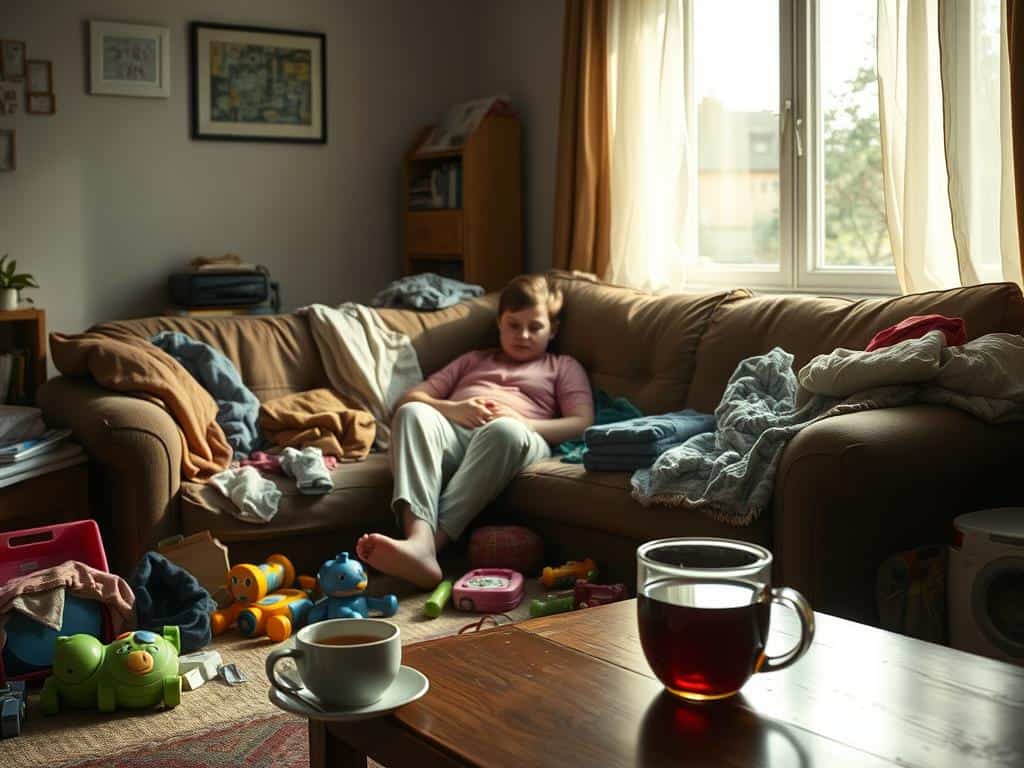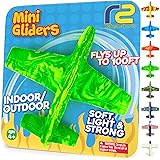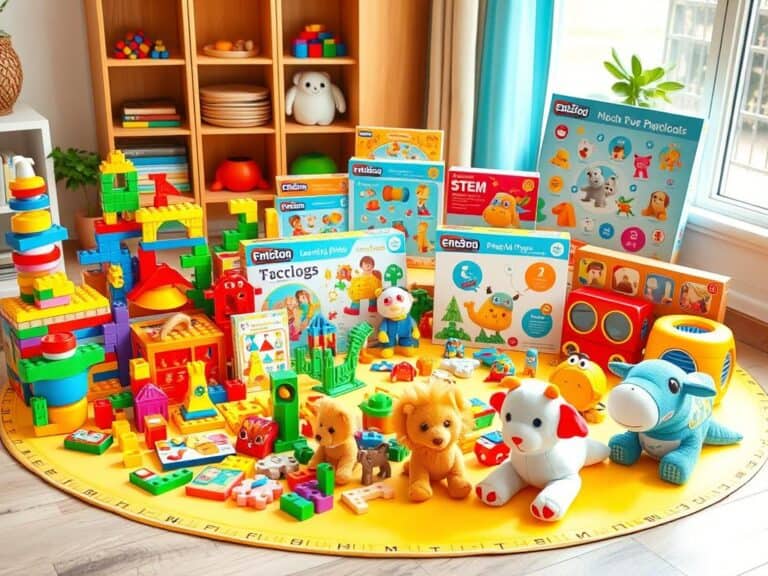Navigating Parental Burnout: Practical Self-Care Strategies
Bright Starts Oball Shaker Rattle Toy, Ages Newborn Plus
$3.99 (as of March 1, 2026 18:59 GMT +00:00 - More infoProduct prices and availability are accurate as of the date/time indicated and are subject to change. Any price and availability information displayed on [relevant Amazon Site(s), as applicable] at the time of purchase will apply to the purchase of this product.)SEREED Baby Balance Bike for 1 Year Old Boys Girls 12-24 Month Toddler Balance Bike, 4 Wheels Toddler First Bike, First Birthday Gifts
$29.99 (as of March 1, 2026 18:59 GMT +00:00 - More infoProduct prices and availability are accurate as of the date/time indicated and are subject to change. Any price and availability information displayed on [relevant Amazon Site(s), as applicable] at the time of purchase will apply to the purchase of this product.)Schylling NeeDoh Nice Cube -Sensory Squeeze Toy with Super Solid Squish - 2.25" Cube
$15.99 (as of March 1, 2026 18:59 GMT +00:00 - More infoProduct prices and availability are accurate as of the date/time indicated and are subject to change. Any price and availability information displayed on [relevant Amazon Site(s), as applicable] at the time of purchase will apply to the purchase of this product.)This post may contain affiliate links which means I may receive a commission for purchases made through links at no extra cost to you. I only recommend products I truly believe in. Thank you for your support!
As a parent, I’ve faced the overwhelming demands and stresses that lead to burnout. Burnout is feeling extremely tired, emotionally detached, and overwhelmed. It’s common today because work and home life mix too much.
In this guide, I’ll share self-care strategies that helped me with burnout. These tips come from my own experience and the latest research. My aim is to help you, as a parent, take care of yourself and be the best parent you can be.
Key Takeaways
- Parental burnout is a state of chronic physical and emotional exhaustion resulting from the stress and demands of parenting.
- Recognizing and addressing parental burnout is crucial for maintaining well-being and being a ‘good enough’ parent.
- This guide offers practical solutions grounded in personal experience and research, providing immediate, actionable tools and step-by-step recovery frameworks.
- The strategies in this guide can help parents manage stress, establish boundaries, and prioritize self-care in the digital age.
- Implementing these self-care practices can lead to improved physical, emotional, and mental well-being for both parents and their families.
Understanding Parental Burnout

Parental burnout is more than just feeling tired. It’s a deep, lasting exhaustion that affects how well you parent and how you feel. It makes you feel cynical, detached, and like you’re not doing a good job as a parent.
Defining Parental Burnout
It’s feeling drained, lacking energy, and not feeling accomplished as a parent. It shows up in many ways. You might always feel tired, lose joy in things, do worse at work or home, and feel alone.
Recognizing the Symptoms
Signs of burnout include feeling emotionally drained, getting angry or impatient easily, and ignoring your own needs. These signs can hurt your happiness and how you connect with your kids.
The Impact on Family Life
Burnout can mess up family life, causing more fights, tension, and unhappiness. It can make it hard to bond with your kids, leading to feeling distant, unresponsive, and not enjoying time together.
Knowing what causes burnout, like too much pressure, not enough support, and too much stress, is key. Understanding burnout helps parents take care of themselves and keep a good balance between work and family.
| Symptom | Impact |
|---|---|
| Emotional Exhaustion | Decreased parental efficacy and emotional well-being |
| Increased Irritability | Strained parent-child relationship and family dynamics |
| Neglecting Self-Care | Negative effects on physical and mental health |
By knowing the signs and effects of burnout, parents can start to take care of themselves. This helps keep a healthy balance between work and family life.
The Importance of Self-Care

Being a busy parent can make us forget our own needs. But, it’s key to practice mindfulness and care for ourselves. This helps us avoid burnout and stay strong emotionally. Taking care of our physical, emotional, and social health greatly improves our parenting.
What Self-Care Means to Me
Self-care means connecting with myself and doing things that make me feel good. It’s simple, like taking deep breaths or enjoying a cup of tea. Mindfulness helps us stay present and feel less stressed.
Benefits of Self-Care in Parenting
Self-care has many benefits for parents. It can reduce burnout symptoms like feeling tired, distant, and irritable. By focusing on our mental health, we become better caregivers. We handle parenting challenges with more ease and joy.
| Symptom of Parental Burnout | Impact on Family Life |
|---|---|
| Chronic Fatigue | Difficulty engaging with children and completing daily tasks |
| Emotional Distance | Strained relationships and disconnection from family members |
| Irritability | Increased conflict and tension within the household |
| Feeling Trapped | Sense of hopelessness and inability to find a way forward |
| Loss of Joy in Parenting | Diminished fulfillment and engagement in family activities |
By adding self-care to our daily lives, we build emotional strength. This makes parenting easier and more enjoyable. Whether it’s mindfulness, talking to friends, or taking a break, caring for ourselves benefits our families greatly.
“The most difficult thing is the decision to act, the rest is merely tenacity.” – Amelia Earhart
Building a Support Network

As parents, we often feel the weight of the world on our shoulders. We navigate the challenges of raising children while managing our own lives. It’s easy to feel overwhelmed and alone. But, building a strong support network can change everything.
Seeking Help from Family and Friends
Reaching out to our loved ones can be a big help. Whether it’s help with chores or just someone to listen, their support matters a lot. Studies show that parents with strong support systems are more resilient.
Joining Parenting Groups or Communities
Connecting with other parents can be very supportive. Joining local or online groups gives us a safe space to share and find advice. These communities offer resources and strategies to help us cope with fatigue.
Building a support network is key to preventing burnout. By asking for help and joining groups, we get the support we need. This helps us take care of ourselves and our families better.
| Benefit | Impact |
|---|---|
| Reduced Stress and Burnout | Parents with strong support systems are more resilient and less likely to experience exhaustion from caregiving. |
| Improved Mental Health | Engaging with a support network can alleviate feelings of isolation and provide emotional outlets, contributing to better mental well-being. |
| Practical Assistance | Family and friends can offer help with household tasks, childcare, and other responsibilities, lightening the load for parents. |
| Shared Experiences | Connecting with other parents in support groups or communities can foster a sense of understanding and belonging. |
By nurturing our support network, we can find the resources and resilience we need. This helps us navigate parenting’s ups and downs more easily.
Setting Realistic Expectations

As parents, we often feel the need to be perfect. We try to balance work, home, and our kids’ needs. But setting realistic goals is key to avoiding burnout and keeping a good balance.
Learning to Say No
Saying no is a big part of setting realistic goals. It’s fine to turn down extra tasks that make us stressed and tired. By choosing what’s important, we avoid trying to do everything.
Identifying My Limits
Knowing our limits is also crucial. We all have only so much energy and resources. Recognizing when we’re full helps us avoid burnout and stay well.
Remember, being perfect is not possible. It’s okay to make mistakes. Focusing on our well-being, not perfection, helps us feel less pressured and less likely to burn out.
By setting realistic goals, saying no, and knowing our limits, we can handle work-life balance better. This helps us avoid the bad effects of burnout.
Prioritizing Mental Health

As busy parents, taking care of our mental health is key. Mindfulness helps us deal with stress and build emotional strength. It lets us find calm in the chaos of parenting.
But sometimes, we need more help. Knowing when to get professional help is important. Signs include feeling overwhelmed, struggling with daily tasks, or changes in sleep or appetite. These can mean it’s time to see a mental health expert.
Incorporating Mindfulness Practices
Mindfulness, like deep breathing or meditation, can greatly improve our mental health. It helps us handle stress and feel more calm and clear. By adding mindfulness to our daily lives, we become stronger caregivers and find peace in busy times.
Knowing When to Seek Professional Help
While self-care is vital, sometimes we need professional help. Therapy offers tools for mental health issues and better family communication. Resources like therapists, hotlines, and support groups help us focus on our mental health.
“When I started prioritizing my mental health, I noticed a significant improvement in my ability to be present and patient with my children. It made me a better parent.”
By using mindfulness and knowing when to seek help, we can improve our mental health. This strengthens our families.
| Benefits of Therapy and Counseling for Parents |
|---|
| Developing coping strategies for managing stress and emotions |
| Gaining a safe space to express thoughts and feelings without judgment |
| Improving communication and relationship dynamics |
| Enhancing self-awareness and self-care practices |
| Building resilience and coping skills for long-term mental wellness |
Creating a Daily Routine
As parents, we often juggle many tasks, leaving little time for ourselves. But, a daily routine can change this. It helps us find a better work-life balance for parents and self-care for exhausted parents. By setting priorities, sharing tasks, and making time for ourselves, we can balance our lives.
Structuring My Day for Balance
Start your day with a plan. Wake up a bit early for a quiet moment. This could be meditation, journaling, or enjoying your coffee.
Set aside specific times for important tasks like cooking, taking care of kids, and work. Try to stick to your schedule but also be flexible.
Finding Time for Myself
- Use your child’s nap time for activities that make you happy, like reading or walking.
- Ask family or friends for help with childcare sometimes. This gives you a break to do what you love.
- Make time for self-care, even if it’s just a few minutes a day. This could be a relaxing bath or deep breathing.
“The key to maintaining a healthy work-life balance is to be intentional about how you structure your day and prioritize self-care. It may require some adjustments, but the benefits are invaluable.”
Creating a daily routine that supports your work-life balance for parents and self-care for exhausted parents is a journey. Be kind to yourself and adjust as needed. By doing this, you can take back control and care for yourself, which benefits everyone.
Engaging in Physical Activity
As exhausted parents, we must remember the power of physical activity. It helps us feel better and deal with the stress of parenting. Exercise can boost our mood and energy, making it a key part of self-care.
Benefits of Exercise for Parents
Many studies show exercise is good for parents. The World Health Organization says it can help with burnout. Health Direct also notes it can lower stress and improve mood.
Simple Ways to Stay Active
- Take the family for brisk walks around the neighborhood
- Participate in at-home workout videos or streaming fitness classes
- Engage in active play with your children, such as chasing games or dancing together
Even a little exercise each day can help us feel better. Kendra says small, daily self-care actions are very important for parents.
By choosing to exercise, we improve our health and show our kids the importance of it. It can bring us closer as a family. Remember, taking care of ourselves is essential in parenting.
Embracing Hobbies and Interests
As caregivers, it’s easy to forget what we loved before. But, taking care of ourselves is key to staying strong. Finding hobbies and passions again can be a big help. It lets us relax and find balance in our busy lives.
Rediscovering What I Love
Think about what used to make you happy. Maybe it was painting, reading, or a sport. Try to do these things again, even a little bit. The goal is to make these activities a part of your daily life.
Making Time for Activities that Energize Me
- Schedule regular “me time” to engage in your chosen hobby or interest.
- Involve your family in your interests, making them a shared experience.
- Seek out local classes or groups that cater to your passion, fostering a sense of community.
- Embrace the flexibility to adapt your hobbies as your family’s needs change over time.
By focusing on what you love, you’ll feel better and teach your kids about self-care. Enjoy the happiness and energy that comes from finding your passions again.
“Taking time for myself helps me be a better parent. It’s not selfish, it’s necessary.”
Strategies for Staying Positive
Being a parent can be tough, but staying positive helps a lot. By being thankful and thinking positively, we can handle parenting’s ups and downs. These tips help us care for ourselves and enjoy the journey.
Practicing Gratitude
Staying positive starts with noticing the good things in life and parenting. Taking a few minutes each day to think about what I’m thankful for changes my view. It helps me see challenges as chances to grow and find joy in the little things.
Fostering a Positive Mindset
Having a positive mindset means celebrating my wins and being kind to myself. When things get hard, I look for the good in it. Recognizing my efforts and progress boosts my confidence and helps me stay positive.











